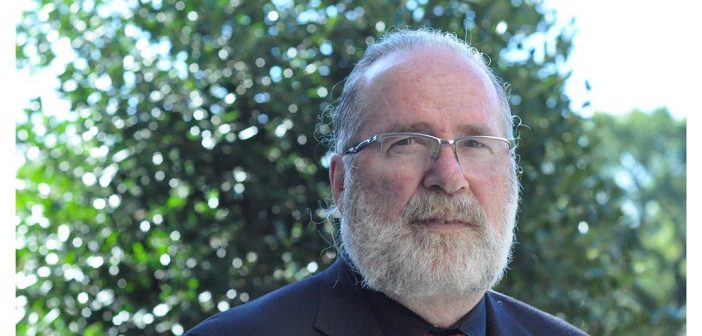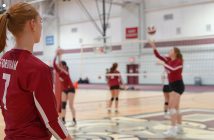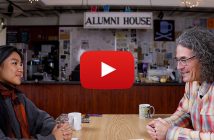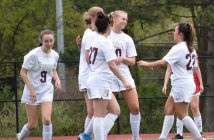TITLE: Director of Experiential Education in the Department of Career Services
WHAT HE DOES: Stratford is the University’s first director of experiential education, a position which was created as part of the University’s 2016 Strategic Plan.
“I am responsible for the career counseling, career education, and career awareness for the University undergraduate schools and two graduate schools. Our office prepares the students for their job interviews and, in a larger sense, for the world of work. I am also responsible for the undergraduate internship program.”
HOW LONG AT FORDHAM: Stratford has been at Fordham since 1981 and is the longest tenured member of the student affairs division. He has served as dean of students at both campuses for 14 years, and was also the dean of students at Marymount, where he helped oversee the transition to becoming part of Fordham.
HOW CAREER SERVICES CHANGED: “Career Services had a successful track record when the economy was good, but we had gotten away from the counseling model of services. In 2008, when the economy faltered, it was a good time to start counseling the students and preparing them for the world of work. Now, the focus is student-centric. Our main goal is to engage students in the conversation about the value of their liberal arts education and how it serves the work world. We have a Fordham Futures model, an eight-semester approach to career planning and professional development. We identify 10 liberal arts skills, among them being listening, thinking speaking, writing, reading, reflecting, measuring, calculating, estimating, and dreaming. These become our students’ ‘tools of inquiry’ through their core curriculum and beyond.”
WHAT IT IS LIKE OUT THERE: “Students no longer have the luxury of going to a university and not paying attention to what is going outside the gates. The National Association of Colleges and Employers (NACE) surveyed employees and asked what mindsets they were looking for in new employees. At the top of the list was young people who had a ‘big picture’ mindset, and following that was ‘analytical thinkers,’ ‘strategic thinkers,’ and ‘good problem solvers.’”
“So we work with the students to get them to realize that the things they are learning in the core curriculum have great importance—how you think, how you listen, how you write. Match that with the NACE list; it is a perfect fit.”
IT’S THE ECONOMY: “In today’s economy, young people are being asked to engage in jobs that do not have products, but are ideas-based. In the history of the human experience, there have been a few different economies –hunting and trading. agrarian, industrial. Today we have the knowledge economy. It has involved into ideas and concepts fueled by technology and great ideas. And it is young people who are prepared to lead an economy like this.
“They are also the most tolerant generation to walk the planet. That is invaluable because they are participating in an economy where collaboration is the currency of the day. And having a liberal arts education couldn’t happen at a better time. I say, unashamedly but certainly.”
PERSONAL CONNECTIONS – Stratford’s family is a Fordham family. His wife is an alumna of the Graduate School of Education; his son graduated from Fordham in 1999 and from Fordham Law in 2002, and his daughter graduated from Fordham in 2010. He is a lifelong resident of the great state of New Jersey, and he is a Yankees fan.
“My work consumes me in the nicest of ways. I have a cherished career.”



